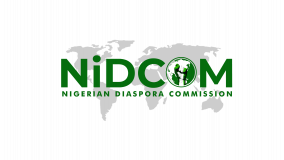Nigeria has retained its spot as one of the low-cost destinations for international surrogacy without a legal framework at a time when countries are increasingly tightening local laws to sanitise surrogate schemes.
Commercial surrogacy is currently not illegal in Nigeria and the country lacks legal safety nets to uphold ethical standards or protect women who act as surrogates. A woman can get paid to carry someone else’s genetic child through IVF and embryo transfer.
According to NGA Law, a UK-based fertility law firm that specialises in international surrogacy, such plans in Nigeria often lack transparency and altruism and could be poverty-induced.
Kelly Blaxall, a senior paralegal at the firm stated that some agencies and clinics do not encourage parents to have a relationship with their surrogates, and the surrogate’s motivations are not always openly communicated.
Read also: How to know if your virginal discharge is healthy or unhealthy
“Having also supported several parents engaging in surrogacy in West Africa, namely Nigeria and Ghana, surrogacy as a way of building a family is still emerging. Often, there is stigma attached to infertility which can make it difficult for surrogates and parents to be open and ensure their choice, safety, and wellbeing are protected,” Blaxall said in a report by NGA Law.
The firm also highlighted a growing increase in international recruitment of women acting as surrogates across borders, either for IVF treatment, pregnancy or birth.
“This comes with significant ethical, logistical, safety, and legal implications. Are the women involved fully informed and consenting? How will the surrogate be supported in a foreign country? What happens if something goes wrong with the pregnancy or birth? Is it safe for the surrogate to be travelling during the pregnancy? If the birth happens in the ‘wrong’ country, what is the legal position for the surrogate, parents, and the baby?”
Georgia has announced plans to ban commercial surrogacy for foreign parents from 2024 after a policy that empowered legal parenthood from birth led to an overwhelming rise in demand, especially from the UK.
The country has drafted a bill that permits the practice only on the “principle of altruism” and exclusively for Georgian couples. However, such carriers can be compensated only for inconveniences related to the process, such as costs of medical examinations or labour.
NGA Law sees Greece as next in line of strict sanctions following the launch of a criminal investigation into allegations of human trafficking at a Crete clinic last month.
India and Thailand banned surrogacy for foreign parents since 2015 and Ukraine which used to be the next hotbed of surrogacy schemes has been hit by the war with Russia.
This means that low-cost options are reducing, mounting pressure on countries without legal frameworks such as Nigeria to fix the shortages.
The USA remains the most popular global surrogacy destination with clear legal frameworks but it comes at a very high cost.
On average, six newborn babies were moved into the UK monthly in 2022 by British parents returning from countries such as Nigeria and Georgia, where poverty and maternal mortality rates are much higher.
Between 2014 and 2021, British parents sought UK parental orders for at least 570 babies born to surrogates, including 33 in Nigeria, 201 in Ukraine, 182 in India, 80 in Georgia and 26 in Thailand, according to Children and Family Court Advisory and Support Service in England.
Read also: FG urged to deepen public private partnership in health sector
Blaxall noted that there is a significant shortage of surrogates in the UK, making parents pursue international surrogacy.
With the growing expansion of the surrogacy market, analysts are increasingly asking for governments around the world to start to regulate the industry and increase protective measures.
Sam Everingham, the global director of Growing Families, a Sydney-based surrogacy networking organisation in a report said “Some hard questions need to be asked of providers about what they’re doing to look after surrogates and vacuums need to be filled at a country level to ensure parents are protected from doing desperate things”.
Similarly, Abayomi Ajayi, managing director and chief executive of Nordica Fertility Centre has called on the legal system in Nigeria to catch up with the practice across the country, noting that “the only thing that can protect is the laws”.
Join BusinessDay whatsapp Channel, to stay up to date
Open In Whatsapp





